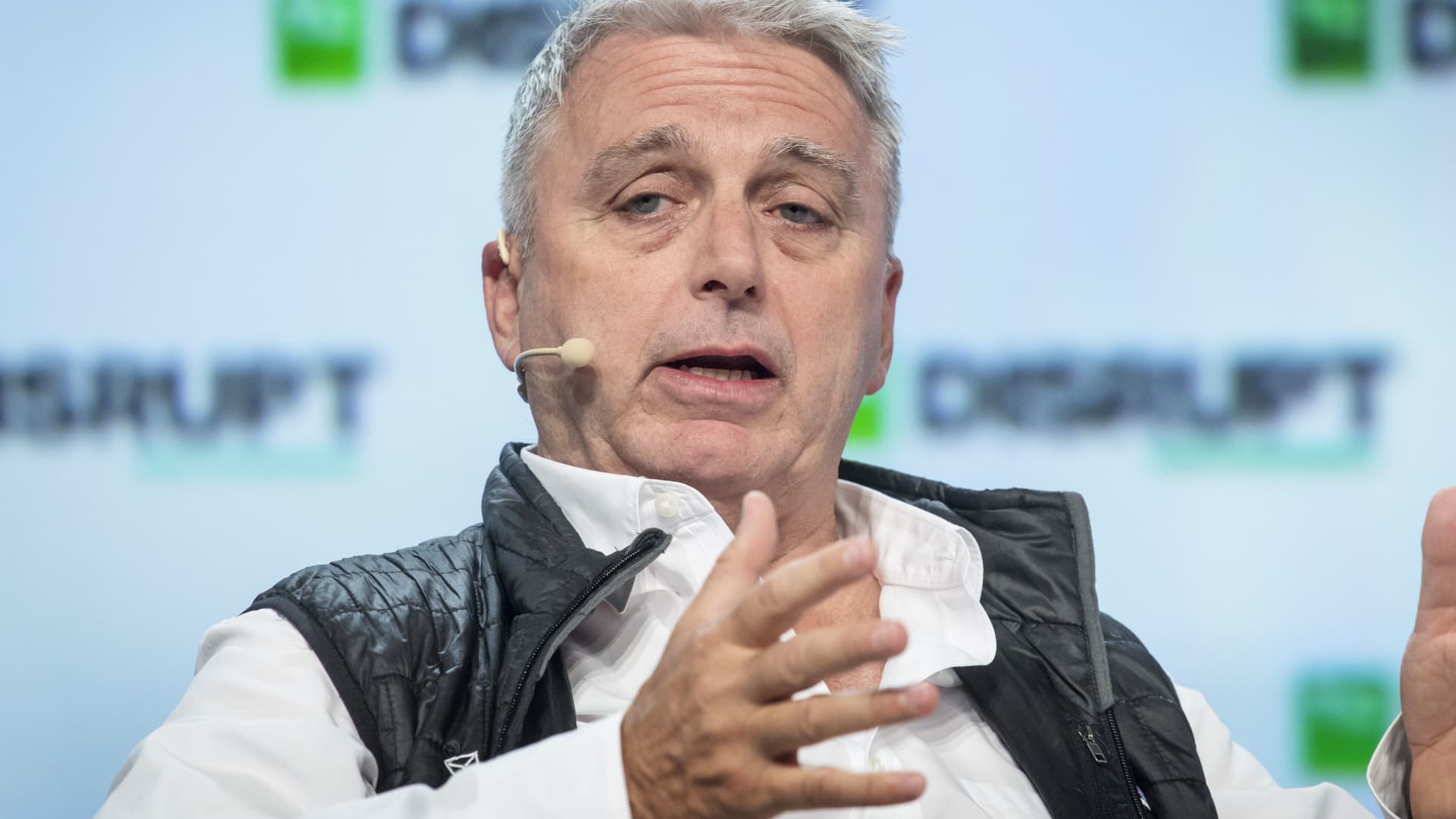
John Riccitiello, CEO of Unity Technologies, speaks during the TechCrunch Disrupt 2018 summit in San Francisco, Sept. 5, 2018.
David Paul Morris | Bloomberg | Getty Images
Unity rose over 15% to $42.38 per share on Tuesday after the gaming tool maker announced a marketplace for artificial intelligence software that positions it as a platform in the hottest part of the technology industry.
Unity’s customers, which use its game engine software to produce games for phones, consoles and virtual reality headsets, will be able to choose from software that can do things such as generate game dialogue or textures and graphics using AI from independent companies such as Inworld AI or Polyhive.
AI companies will be able to distribute their software to game makers and charge for it through Unity’s Asset Store.
The surge in Unity’s price comes as company officials have talked about the potential they see in AI in recent weeks.
“I think AI will change gaming in a couple of pretty profound ways. One of them is it’s going to make making games faster, cheaper and better,” Unity CEO John Riccitiello said in an interview published Monday by the Associated Press. “It’s already happening.”
Separately, the company was also given an overweight rating and a target price of $48 by Wells Fargo analyst Brian Fitzgerald in a note Tuesday.
Fitzgerald and his team said investors may see Unity’s current share price as a buying opportunity, and that the company could expand its business outside of gaming, with “digital twins” and other simulation products for enterprises.
“Though we acknowledge that interactive entertainment industry consolidation may, over the long term, drive the development and use of proprietary game development tools/assets by large studios, we believe in Unity’s strong competitive positioning in the space,” Fitzgerald wrote.
The note also said “metaverse” hype was dying down, creating a buying opportunity.
Before Unity started directing investor attention to AI, it was closely linked to headset efforts, such as Meta‘s, because its software can be used to create virtual reality apps.
Earlier this month, Apple said VR apps made with Unity would be supported on the Vision Pro, its headset expected to release early next year.
Riccitiello doesn’t like the term metaverse, a word Apple never uses. “I always thought the word was loaded and kind of stupid,” he said in the AP interview.




